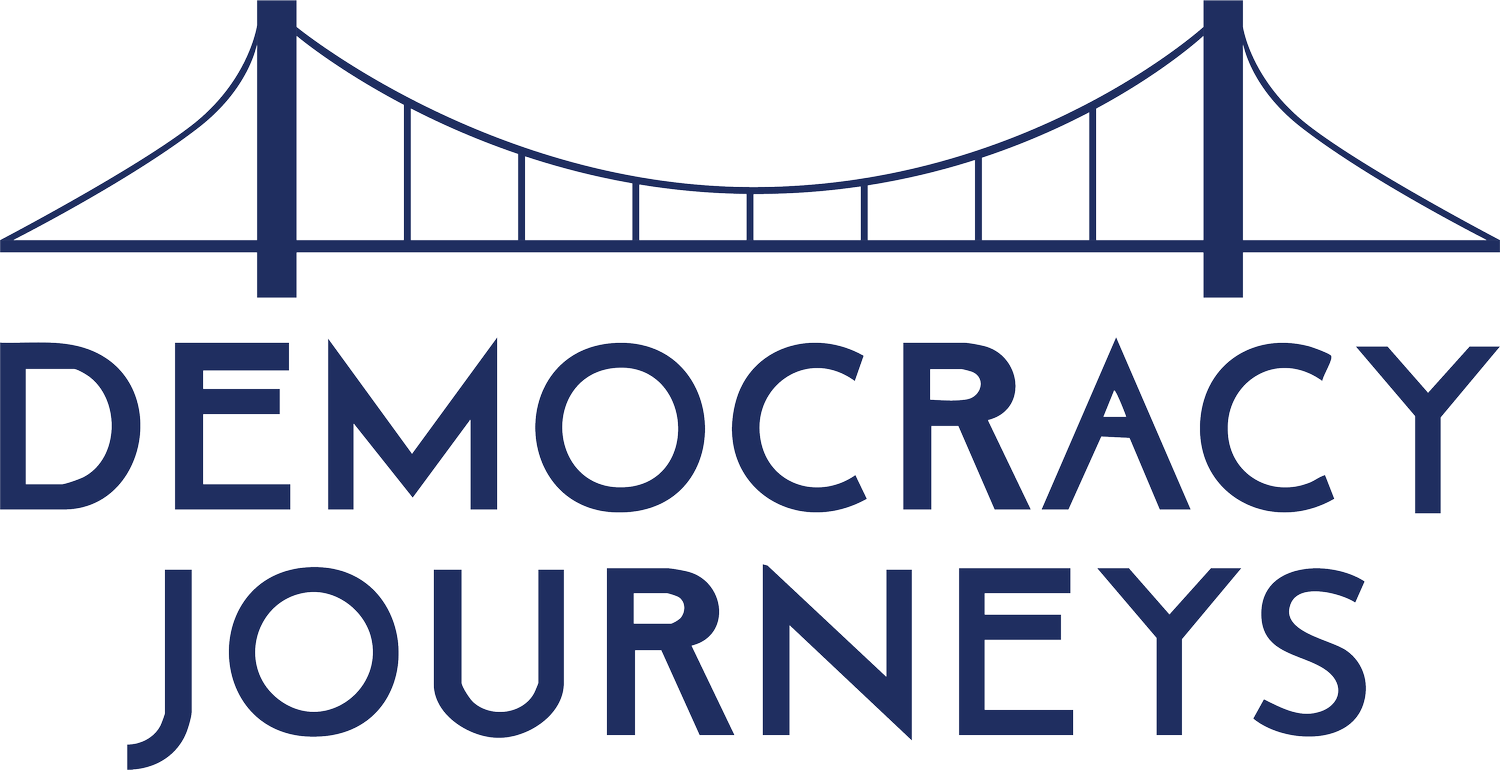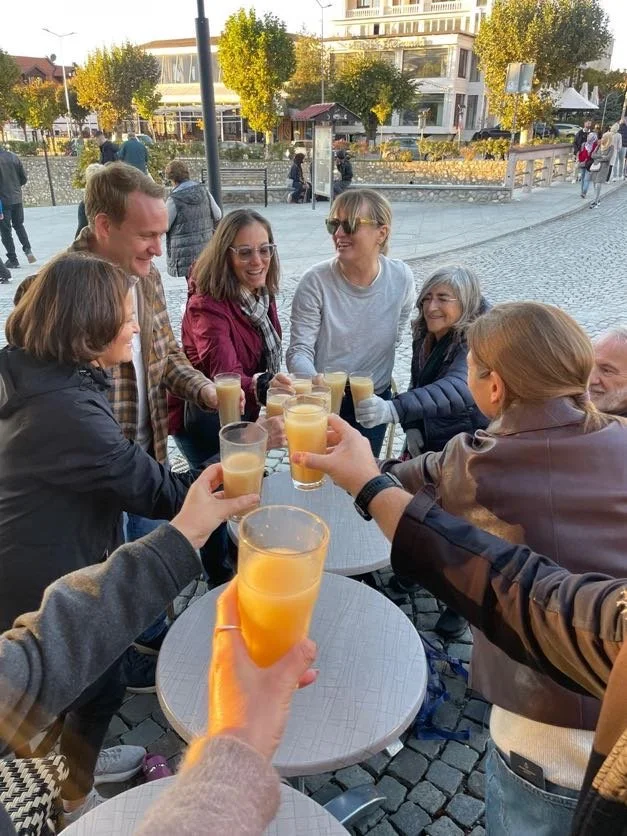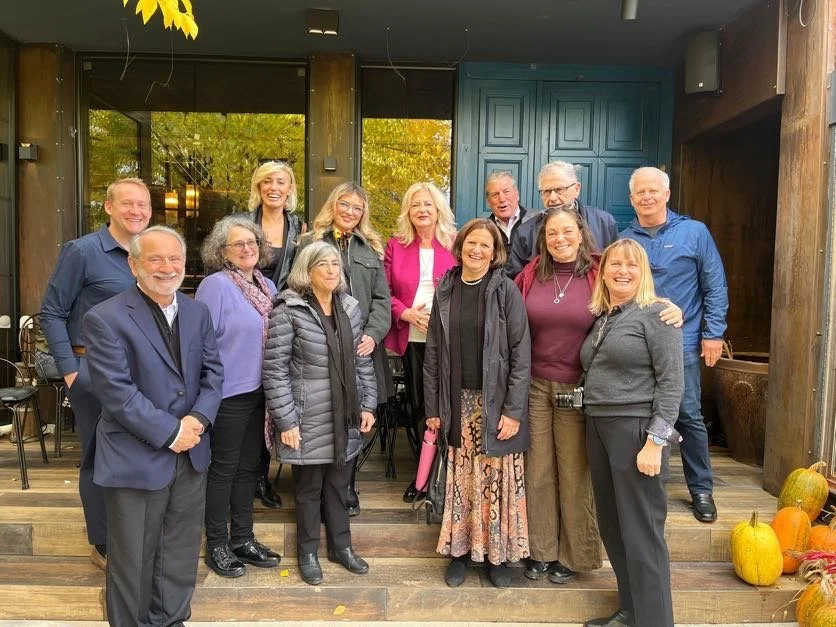A Beautiful Beginning: What Our First Journey Taught Me About Hope
When I landed in Pristina, Kosovo, last month, I felt a mix of familiarity and anticipation. I’ve been coming to countries like this for most of my professional life — places rebuilding after conflict, societies working toward democracy. But this time was different.
I have spent much of my career working with Democracy International, a Washington-area organization that partnered primarily with USAID to strengthen democratic institutions in more than 80 countries. Our work took us to polling stations in Afghanistan, the halls of parliament in Malawi, civil society offices in Tunisia, and more. We worked alongside our partners to advance a more peaceful and democratic world.
Now, with our new initiative, Democracy Journeys, we’re doing something new — and, I think, equally necessary. We’re inviting Americans to experience democracy through the eyes of democratic leaders of other countries.
Democracy Journeys was born from a simple but powerful idea: that travel can deepen understanding, bridge divides, and remind us of our common stake in democratic values. Our trips are small by design — no more than 15 people — and we travel with the goal of connecting with the people shaping their country’s future.
Our inaugural journey took us to Kosovo and North Macedonia, two young democracies in the heart of the Balkans, where history and hope are intertwined. I traveled with a small group of thoughtful Americans — all curious about what democracy looks like in practice and what it takes to sustain it.
From our first evening in Pristina, gathered around a dinner table with one of Kosovo’s leading activists, I could sense that this trip would be something different. The conversation was candid and layered. I remember being struck partway through dinner with the thought that I wish more Americans could be in conversations like this.
Over the next several days, we met the people who have shaped Kosovo’s remarkable journey through the violence that marked the breakup of Yugoslavia and since independence in 2008. From private briefings with former military leader and Minister of Defense Anton Cuni and lead negotiator and diplomat Dr. Edita Tahiri to an intimate conversation with Atifete Jahjaga, Kosovo’s first female president, we heard from remarkable leading voices in Kosovo’s contemporary democracy. As I looked across the tables during these conversations, I realized this is exactly the kind of access and stories we wanted to make available to our travelers.
Then, in the historic city of Prizren, we walked its cobblestone streets to the Ottoman bridge, climbed to the fortress above the river, and talked about identity — how a multiethnic city like this holds itself together after conflict. Over dinner, Prizren’s Mayor Totaj spoke about this important balance, how people from different groups could live peacefully together even after violent conflict.
The next morning, we visited Krusha, a village almost entirely destroyed during the war. There, Fahrije Hoti, who lost her husband and relatives in a 1999 massacre, has built a cooperative of women producing traditional ajvar (a red pepper spread) and pickled vegetables. Her story — of grief turned to action — was unforgettable.
That afternoon, at the Deçani Monastery, a 14th-century Serbian Orthodox site surrounded by high walls and still under NATO protection, Serbian Orthodox Abbott Father Sava Janjić spoke with us about coexistence and the daily work of peace. A day with two very different and powerful stories — of trauma, strength, and rebuilding.
Halfway through our journey, we crossed the striking Sharr Mountains into North Macedonia, In the capitol of Skopje we explored the city’s layered identity: Ottoman bazaars, modernist buildings from the post-earthquake reconstruction, and the glaring kitsch statues, monuments, and buildings that make up the controversial government Skopje 2014 project.
Here, our focus turned to civic activism. We met journalists and organizers from the Colorful Revolution — the 2016 protest movement that helped disrupt years of corruption and authoritarianism. They spoke about how civic courage can grow even in the face of fatigue, how protest can give way to governance, and how the work of democracy never really ends.
By the time we reached Lake Ohrid, one of the most picturesque lakes in Europe, our conversations had deepened. Over lunch with a local chef and his wife in their apartment overlooking the lake, talk turned to home. Several travelers reflected on how seeing others fight for accountability and pluralism had reminded them of democracy’s fragility.
For me, this is what Democracy Journeys is about. It’s travel rooted in respect and curiosity — a chance to sit across from people doing the hard, daily work of self-government, to seek solidarity and to see ourselves in their efforts.
When you spend your career in democracy support, you understand that institutions matter — but people matter more. Laws can be written, elections can be organized, but it’s the conversations across differences, the incremental acts of trust, that bring and hold a democracy together. Our travelers experienced that truth not through briefings or reports but through the generosity of those who shared their stories.
In this way, Democracy Journeys is less a departure from our past work than an extension of it. After years designing programs for governments and civil society, we’re now designing experiences that help everyday Americans engage with the same values — freedom, inclusion, accountability — in a personal, tangible way.
We launched this effort at a time when democracy itself feels uncertain — at home and abroad. Around the world, authoritarianism is resurgent; in the United States, polarization has strained us all. Yet what I saw in Kosovo and North Macedonia reminded me that the democratic impulse is resilient. Travel won’t solve democracy’s challenges, but it can restore perspective and inspire change. It can remind us that citizenship is a shared human project, not a solitary national one. It can renew the empathy that is so integral to civic life.
As our group said goodbye in Skopje, there was laughter, a few tears, and a new (or renewed) sense of purpose. People spoke about what they would bring home — not souvenirs, but insight, resolve, and some hope too! For me, that’s enough reason to keep going — to keep traveling, connecting, and believing that democracy, wherever it takes root, is worth the journey.
Founder of Democracy Journeys








